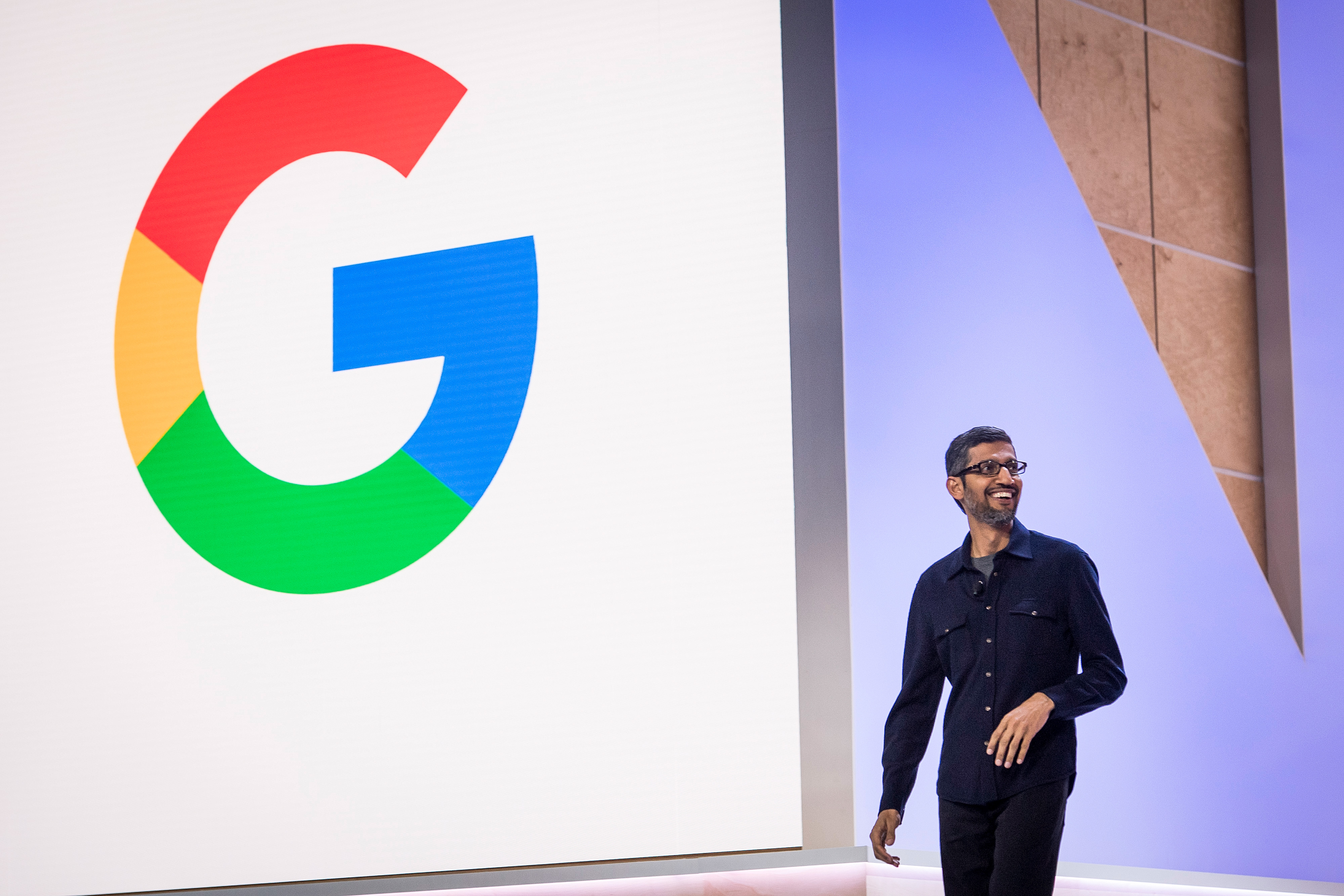Has Google reached ‘quantum supremacy’?
IBM questions technology giant’s breakthrough in quantum computing


A free daily email with the biggest news stories of the day – and the best features from TheWeek.com
You are now subscribed
Your newsletter sign-up was successful
Google claims it has achieved “quantum supremacy” in the field of computing, building a system that can solve problems that a traditional computer, in practical terms, cannot.
Researchers at the company revealed their breakthrough in a blog post and article in the scientific journal Nature, claiming their 53-bit Sycamore processor can handle in about 200 seconds a calculation that would take a “state-of-the-art classical supercomputer” approximately 10,000 years.
“This dramatic increase in speed compared to all known classical algorithms is an experimental realization of quantum supremacy for this specific computational task, heralding a much-anticipated computing paradigm,” said Google’s AI Quantum team and John Martinis, a physicist at University of California at Santa Barbara.
The Week
Escape your echo chamber. Get the facts behind the news, plus analysis from multiple perspectives.

Sign up for The Week's Free Newsletters
From our morning news briefing to a weekly Good News Newsletter, get the best of The Week delivered directly to your inbox.
From our morning news briefing to a weekly Good News Newsletter, get the best of The Week delivered directly to your inbox.
The specific calculation has essentially no practical use, but is rather a demonstration of the potential of quantum systems - which instead of storing information in binary 1s or 0s, replace them with qubits, which can be both 0 and 1. It is, The Washington Post describes, “a technology that relies on the bizarre behavior of tiny particles to encode huge amounts of information”.
Speaking in an interview with MIT Technology Review, Google chief executive officer Sundar Pichai called the development the “hello world” moment for quantum computing. He compared it to the Wright brothers’ first flight: “The first plane flew only for 12 seconds, and so there is no practical application of that. But it showed the possibility that a plane could fly.”
Pichai wrote in a blog post that Google started exploring the possibility of quantum computing in 2006. “With this breakthrough we are now one step closer to applying quantum computing to - for example - design more efficient batteries, create fertilizer using less energy, and figure out what molecules might make effective medicines,” he said.
Presidential hopeful and outspoken futurist Andrew Yang described it as a “huge deal”.
A free daily email with the biggest news stories of the day – and the best features from TheWeek.com
However, IBM responded to the claims, pouring cold water on Google’s purported “quantum supremacy”.
“We argue that an ideal simulation of the same task can be performed on a classical system in 2.5 days and with far greater fidelity,” contended Edwin Pednault, John Gunnels and Jay Gambetta in IBM’s research blog. “This is in fact a conservative, worst-case estimate, and we expect that with additional refinements the classical cost of the simulation can be further reduced.”
This reduces the unpractical 10,000 years estimate to a practical matter of days.
–––––––––––––––––––––––––––––––For a round-up of the most important business stories and tips for the week’s best shares - try The Week magazine. Get your first six issues free–––––––––––––––––––––––––––––––
“More fundamentally”, it is a false claim “because quantum computers will never reign ‘supreme’ over classical computers, but will rather work in concert with them, since each have their unique strengths”, they said.
ScienceAlert says: “Despite the claims and counter-claims, the fact that several of the world’s leading quantum computing scientists are even having this debate suggests that the horizon of quantum supremacy, however messily and contentiously, has been reached.”
William Gritten is a London-born, New York-based strategist and writer focusing on politics and international affairs.
-
 Local elections 2026: where are they and who is expected to win?
Local elections 2026: where are they and who is expected to win?The Explainer Labour is braced for heavy losses and U-turn on postponing some council elections hasn’t helped the party’s prospects
-
 6 of the world’s most accessible destinations
6 of the world’s most accessible destinationsThe Week Recommends Experience all of Berlin, Singapore and Sydney
-
 How the FCC’s ‘equal time’ rule works
How the FCC’s ‘equal time’ rule worksIn the Spotlight The law is at the heart of the Colbert-CBS conflict
-
 Will AI kill the smartphone?
Will AI kill the smartphone?In The Spotlight OpenAI and Meta want to unseat the ‘Lennon and McCartney’ of the gadget era
-
 Has Google burst the Nvidia bubble?
Has Google burst the Nvidia bubble?Today’s Big Question The world’s most valuable company faces a challenge from Google, as companies eye up ‘more specialised’ and ‘less power-hungry’ alternatives
-
 How the online world relies on AWS cloud servers
How the online world relies on AWS cloud serversThe Explainer Chaos caused by Monday’s online outage shows that ‘when AWS sneezes, half the internet catches the flu’
-
 Is the UK government getting too close to Big Tech?
Is the UK government getting too close to Big Tech?Today’s Big Question US-UK tech pact, supported by Nvidia and OpenAI, is part of Silicon Valley drive to ‘lock in’ American AI with US allies
-
 Google: A monopoly past its prime?
Google: A monopoly past its prime?Feature Google’s antitrust case ends with a slap on the wrist as courts struggle to keep up with the tech industry’s rapid changes
-
 South Korea's divide over allowing Google Maps
South Korea's divide over allowing Google MapsTalking Points The country is one of few modern democracies where the app doesn't work
-
 Google avoids the worst in antitrust ruling
Google avoids the worst in antitrust rulingSpeed Read A federal judge rejected the government's request to break up Google
-
 Is AI killing the internet?
Is AI killing the internet?Talking Point AI-powered browsers and search engines are threatening the death of the open web
